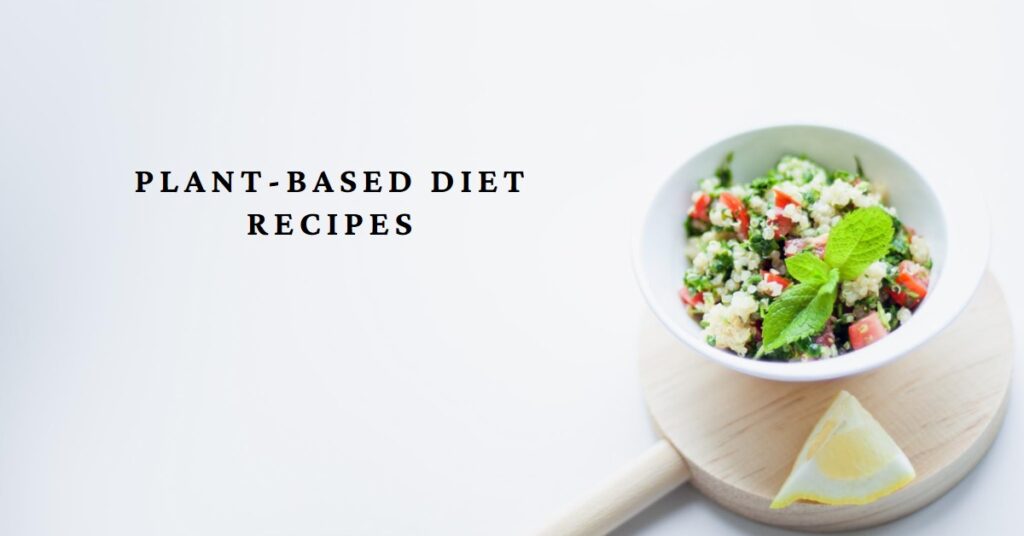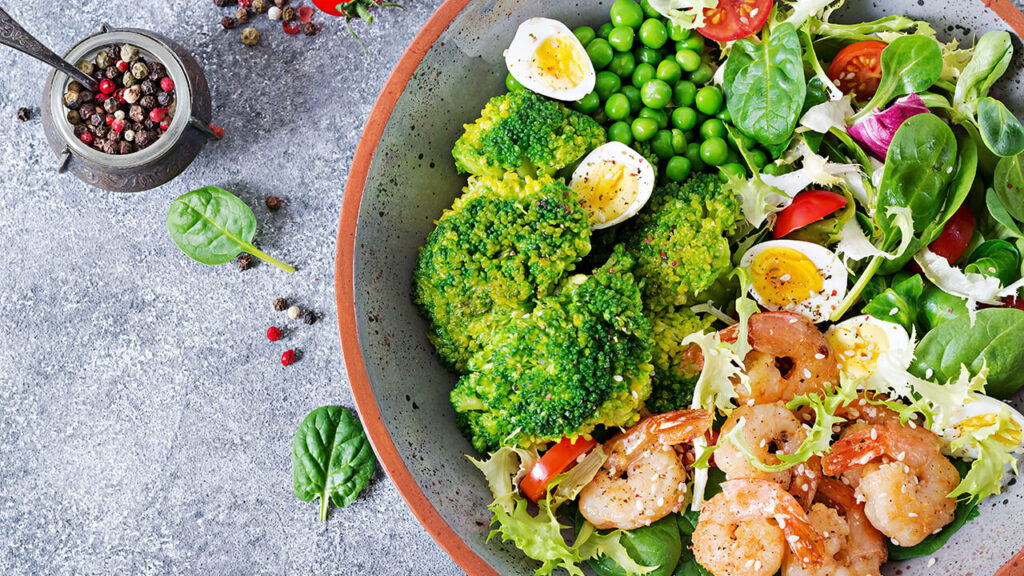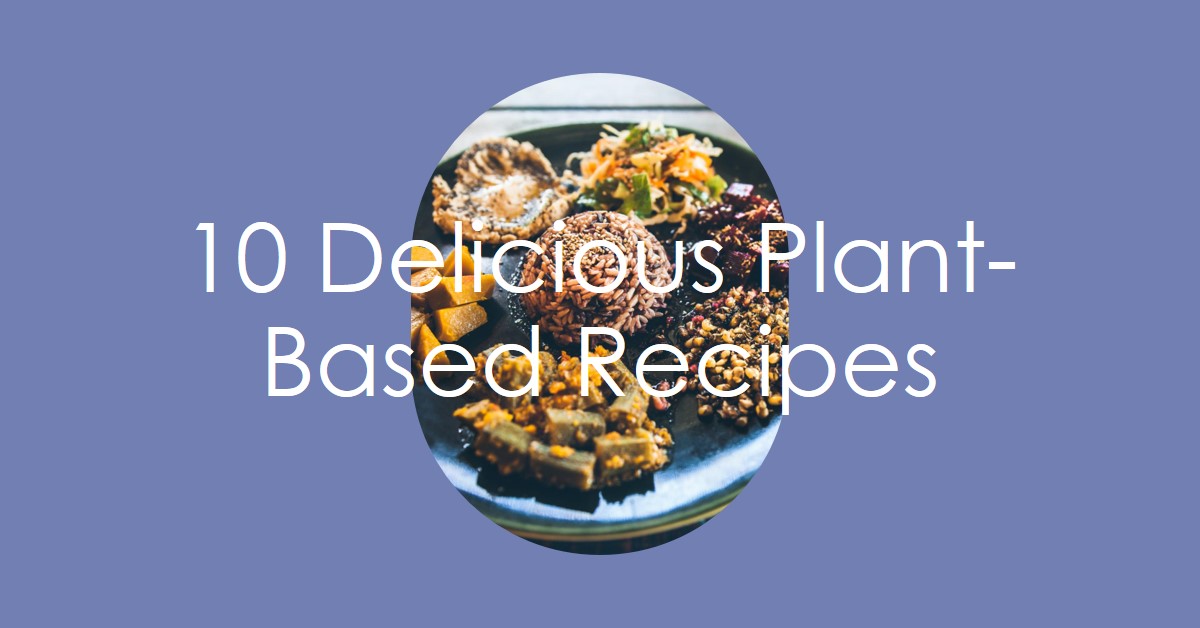A plant-based diet is a healthy and sustainable way to eat, offering numerous benefits for both your body and the environment. By incorporating a variety of plant-based foods into your meals, you can create a balanced and nutritious diet that supports your overall well-being. In this article, we’ll explore 10 delicious plant-based recipes that can help you maintain a balanced diet.
Why Choose a Plant-Based Diet?
The Health Benefits
Adopting a plant-based diet offers a myriad of health benefits. From improved heart health to enhanced digestion, the advantages are significant. A diet rich in plant-based foods can help lower cholesterol levels, reduce the risk of chronic diseases, and boost your immune system.
Environmental Sustainability
Beyond personal health, embracing a plant-based lifestyle is a commendable choice for the environment. Plant-based diets generally have a lower carbon footprint compared to meat-centric ones, contributing to a more sustainable and eco-friendly planet.

Benefits of Plant-Based Diets
Plant-based diets have garnered attention for their numerous health benefits. Packed with essential nutrients, they offer a path to weight management and a reduced risk of chronic diseases. Making the switch to plant-based can be a transformative step towards a healthier lifestyle.
What are plant-based foods for healthy diet?
A healthy plant-based diet should consist of proper portions of vegetables, fruits, whole grains, healthy protein, and healthy oils. It should emphasize consumption of only healthy plant foods, such as whole grains, fruits, vegetables, nuts, legumes, and healthy oils, while reducing intake of less healthy plant foods as well as animal foods.

What are examples of plant-based meals?
Examples of plant-based meals include rolled oats with walnuts, banana, and a sprinkle of cinnamon for breakfast, a breakfast wrap filled with scrambled egg, black beans, peppers, onions, Monterey jack cheese, and a splash of hot sauce or salsa, a quinoa salad with roasted vegetables and chickpeas for lunch, and a lentil soup with whole-grain bread for dinner.
What is a 100% plant-based diet?
A 100% plant-based diet, also known as a vegan diet, is based on plants such as vegetables, grains, nuts, and fruits, and foods made from plants. Vegans do not eat foods that come from animals, including dairy products and eggs.
Is a plant-based diet a balanced diet?
A plant-based diet can be a balanced diet if it includes a variety of foods and provides all the necessary nutrients. A healthy vegan diet should include at least 5 portions of a variety of fruit and vegetables every day, base meals on potatoes, bread, rice, pasta, or other starchy carbohydrates, choose wholegrain where possible, have some dairy alternatives, such as soya drinks and yoghurts, and choose lower fat and lower sugar options, and eat beans, pulses, and other protein.
Key Components of a Balanced Plant-Based Diet
Proteins from Plant Sources
Contrary to common misconceptions, plant-based diets can provide an ample supply of proteins. Incorporate legumes, tofu, and quinoa into your meals for a protein-rich diet without relying on animal products.
Essential Vitamins and Minerals
Ensure you’re getting a variety of fruits and vegetables to cover essential vitamins and minerals. Dark leafy greens, berries, and citrus fruits are excellent choices to meet your nutritional needs.
1. Vegan Lentil Soup
This hearty and flavorful lentil soup is a great option for a plant-based meal. Made with organic lentils, onions, garlic, carrots, and celery, this soup is packed with nutrients and can be easily customized with your favorite spices and herbs.
2. Tofu Stir-Fry
Tofu is a versatile and nutritious ingredient that can be used in a variety of dishes. In this stir-fry recipe, tofu is combined with colorful vegetables like bell peppers, broccoli, and snap peas, and seasoned with a delicious plant-based sauce.
3. Vegan Chili
This plant-based chili recipe is a crowd-pleaser that’s perfect for a cozy night in. Made with black beans, kidney beans, corn, and a blend of spices, this chili is both hearty and satisfying. Serve it with a side of brown rice or quinoa for a complete meal.
4. Vegan Pasta Primavera
This light and refreshing pasta dish is a great option for a summer meal. Made with seasonal vegetables like zucchini, squash, and bell peppers, this pasta is tossed with a delicious plant-based sauce and topped with fresh herbs for a burst of flavor.
5. Vegan Stuffed Bell Peppers
These stuffed bell peppers are a delicious and nutritious option for a plant-based meal. Filled with a mixture of quinoa, black beans, corn, and spices, these peppers are both flavorful and satisfying.
6. Vegan Chickpea Salad
This simple and delicious chickpea salad is a great option for a light lunch or side dish. Made with chickpeas, cucumber, tomato, red onion, and a tangy plant-based dressing, this salad is both refreshing and nutritious.
7. Vegan Stuffed Sweet Potatoes
These stuffed sweet potatoes are a delicious and satisfying option for a plant-based meal. Filled with a mixture of black beans, corn, avocado, and spices, these sweet potatoes are both flavorful and filling.
8. Vegan Lentil Bolognese
This plant-based take on a classic pasta dish is both delicious and nutritious. Made with organic lentils, tomatoes, onions, garlic, and a blend of spices, this bolognese sauce is a great option for a plant-based meal.
9. Vegan Stuffed Mushrooms
These stuffed mushrooms are a delicious and elegant option for a plant-based appetizer. Filled with a mixture of quinoa, black beans, corn, and spices, these mushrooms are both flavorful and satisfying.
10. Vegan Black Bean Tacos
These plant-based tacos are a delicious and satisfying option for a quick and easy meal. Made with black beans, corn, avocado, and a variety of spices, these tacos are both flavorful and nutritious. By incorporating these delicious plant-based recipes into your diet, you can enjoy a variety of flavors and textures while also supporting your overall health and well-being. Remember to use organic ingredients and clean eating principles to ensure that your meals are both nutritious and delicious.
Indulge your taste buds in our “Food and Recipe” category! From mouth-watering recipes to culinary tips, our blog has something for every food enthusiast. Dive into a world of flavors here and elevate your culinary experience!
What are some key nutrients to include in a plant-based diet?
Some key nutrients to include in a plant-based diet are:
- Protein: Plant-sourced foods rich in protein include legumes, nuts, seeds, soy foods, and whole grains. These are essential for muscle repair, immune function, and overall health.
- Omega-3 Fatty Acids: Found in seeds, leafy green vegetables, microalgae, soybeans, and walnuts, omega-3 fats are important for heart and brain health.
- Fiber: Abundant in vegetables, fruits, whole grains, and legumes, fiber supports digestion, helps lower cholesterol, and controls blood sugar levels.
- Vitamins and Minerals: Plant-based diets provide vitamins A, C, E, K, and folate, as well as minerals like iron, calcium, and zinc. These are essential for various bodily functions, including immune support, blood clotting, and bone health.
- Vitamin B12: This is the only nutrient not directly available from plants. It is crucial for nerve function and the production of DNA. Vitamin B12 can be obtained from fortified foods or supplements.
Incorporating a variety of plant-based foods rich in these nutrients can help ensure a well-balanced and nutritious diet, supporting overall health and well-being.
How to make sure a plant-based diet is balanced and nutritious?
To ensure a plant-based diet is high in protein, it is important to incorporate a variety of protein-rich plant-based foods into your meals. Here are some tips to help you get enough protein on a plant-based diet:
- Include legumes: Legumes such as lentils, black beans, chickpeas, and kidney beans are excellent sources of protein. They can be used in a variety of dishes, including soups, stews, salads, and dips.
- Incorporate nuts and seeds: Nuts and seeds such as almonds, chia seeds, hemp seeds, and pumpkin seeds are also great sources of protein. They can be added to smoothies, oatmeal, salads, and snacks.
- Try soy products: Soy products such as tofu, tempeh, and edamame are high in protein and can be used in a variety of dishes, including stir-fries, salads, and sandwiches.
- Include whole grains: Whole grains such as quinoa, brown rice, and farro are not only high in protein but also provide other important nutrients such as fiber and vitamins.
- Use meat substitutes: Meat substitutes such as seitan and veggie burgers can also be a good source of protein. However, it is important to choose products that are low in sodium and other additives.
By incorporating these protein-rich plant-based foods into your meals, you can ensure that you are getting enough protein to support your overall health and well-being. It is also important to note that plant-based protein sources may not contain all the essential amino acids, so it is important to eat a variety of protein sources throughout the day to ensure that you are getting all the necessary nutrients
What are some common mistakes to avoid when transitioning to a plant-based diet?
When transitioning to a plant-based diet, there are several common mistakes to avoid. These include:
- Relying on processed plant-based foods: Depending too much on processed plant-based foods, such as vegan burgers and cheeses, can lead to a diet that lacks essential nutrients and is high in unhealthy additives.
- Comparing your plant-based diet to others: It’s important to remember that everyone’s plant-based diet is unique, and it should be tailored to meet individual needs and preferences. Avoid comparing your choices to others and focus on what works best for you.
- Not eating enough whole foods: Simply switching to plant-based products does not guarantee a healthier diet. It’s essential to focus on consuming a variety of whole, nutrient-dense plant foods such as fruits, vegetables, legumes, nuts, and seeds.
- Not getting enough protein-rich foods: Protein is a vital nutrient, and it’s important to ensure an adequate intake of protein-rich plant foods such as legumes, tofu, tempeh, and seitan.
- Not planning for essential nutrients: Some essential nutrients like vitamin B12, omega-3 fatty acids, and iron may require special attention in a plant-based diet. It’s important to plan meals to include sources of these nutrients or consider supplementation if needed.
By being mindful of these common mistakes, individuals can make a smoother transition to a plant-based diet and ensure that they are meeting their nutritional needs effectively.
Frequently Asked Questions
- Can I get enough protein on a plant-based diet?
- Explore protein-rich plant sources such as beans, lentils, and tofu to ensure you meet your daily protein requirements.
- What supplements are recommended for plant-based eaters?
- While a well-balanced plant-based diet can cover most nutrients, consider supplements for vitamin B12, vitamin D, and omega-3 fatty acids.
- Are plant-based diets suitable for children?
- Yes, with proper planning to meet nutritional needs. Consult with a pediatrician or nutritionist for guidance.
- How can I make the transition to a plant-based lifestyle?
- Start gradually, experiment with new recipes, and seek support from online communities or local groups.
- What are some quick and easy plant-based recipes for beginners?
- Begin with simple recipes like stir-fries, salads, and one-pot dishes. Explore different cuisines for diverse flavors.
Embracing a plant-based lifestyle goes beyond trendy diets; it’s a holistic approach to health and sustainability. By incorporating these delicious plant-based recipes into your daily routine, you not only enhance your well-being but also contribute to a greener planet. Start your journey today and savor the goodness of a balanced plant-based diet.
